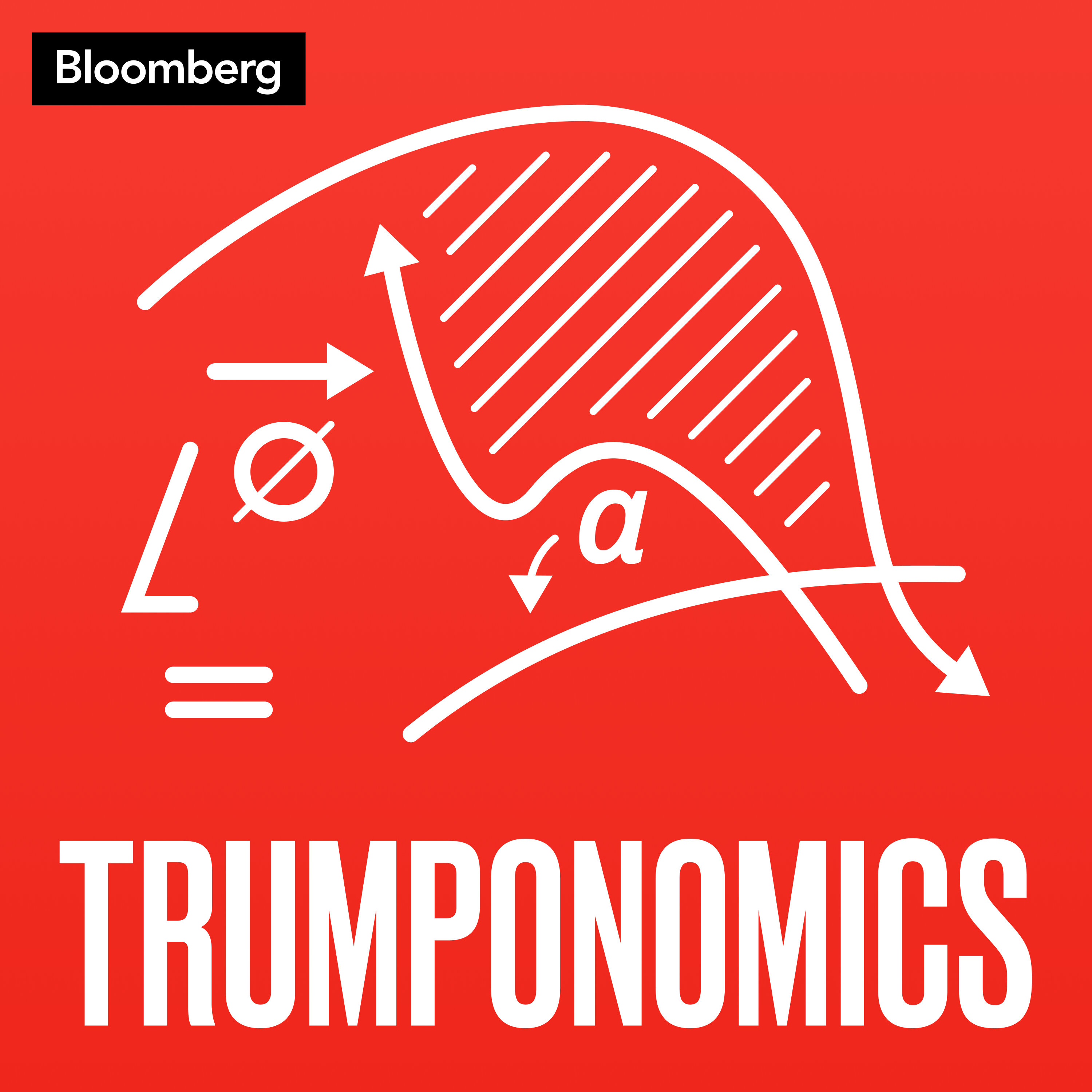

…
Trumponomics
…
·…
Bloomberg
Tariffs, crypto, deregulation, tax cuts, protectionism, are just some of the things back on the table when Donald Trump returns to the Presidency. To help you plan for Trump's singular approach to economics, Bloomberg presents Trumponomics, a weekly podcast focused on the Trump administration's economic policies and plans. Editorial head of government and economics Stephanie Flanders will be joined each week by reporters in Washington D.C. and Wall Street to examine how Trump's policies are shaping the global economy and what on earth is going to happen next.
Tariffs, crypto, deregulation, tax cuts, protectionism, are just some of the things back on the table when Donald Trump returns to the Presidency. To help you plan for Trump's singular approach to economics, Bloomberg presents Trumponomics, a weekly podcast focused on the Trump administration's economic policies and plans. Editorial head of government and economics Stephanie Flanders will be joined each week by reporters in Washington D.C. and Wall Street to examine how Trump's policies are shaping the global economy and what on earth is going to happen next.
Progress
Duration
Release Date